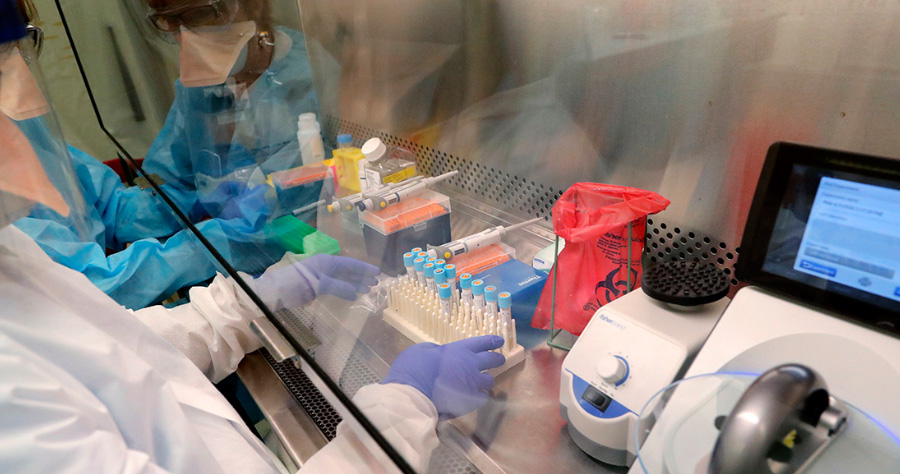
Jennifer McCracken
By Jennifer McCracken, Health Director, Catawba County Public Health
Catawba County, NC – With our county’s first confirmed case of the novel coronavirus (COVID-19) in March and news this month of the first COVID-related death of a Catawba County resident, we know our community’s hearts are heavy with worry. I would like to assure Catawba County residents that Catawba County Public Health and our community partners have been working diligently to respond to COVID-19 and help prevent illness among our residents.
We know many of you have questions about your relative risk of contracting the virus, and you are wondering what is going to happen next. There are still many things we don’t know, but we are working to provide as many answers as we can. Even if we cannot provide the answer you hope to hear, remember that you already have the information you need to protect yourself from getting sick. This includes following the stay at home order, avoiding close contact with others and practicing social distancing, washing your hands often, avoiding people who are sick, and staying away from people when you are sick.
With this in mind, I want to answer a few of the questions we are hearing most often. First, I’d like to address the question on everyone’s mind: what’s my risk of getting sick?
Unfortunately, there is no magic answer to this question. The reality is this: community spread is happening in Catawba County. This means the virus is spreading from person to person without people knowing, which puts everyone at risk. The virus can spread even before someone starts showing symptoms, which is why it is so important to take the stay at home order, social distancing, and all prevention guidelines seriously.
While most people who contract COVID-19 experience mild symptoms and recover within a couple of weeks, many others are at high risk of serious illness from the disease, such as older adults and people with weakened immune systems or underlying medical conditions. Staying home and social distancing helps prevent you and everyone else from getting sick all at once, which prevents our local healthcare system from being overwhelmed. This is especially important for people who may need significant medical care such as hospitalization.
We are not used to having restrictions placed on our daily lives, and they are putting tremendous strain on all of us. Please, let’s all do our part to ensure these sacrifices make a difference.
Is the number of COVID-19 cases reported accurate?
The case numbers we report are based on confirmed test results, and not everyone is being tested for COVID-19. Besides positive and negative test results, no other data is available to show how widespread COVID-19 could be in our community or how many people have recovered. The good news is that for every positive COVID-19 test result we receive, we receive a significantly larger number of negatives.
Why isn’t Public Health sharing information about where the confirmed cases are located? If I don’t know where they are, how can I protect myself?
We are hearing this question quite a bit. With a stay at home order in place, it is natural for people to want to know which areas they should avoid or how much they have to change their usual routine when they go out. The answer to this is complicated, so bear with me.
First and foremost, the only cases we know about are from positive test results. With community transmission occurring here, we don’t know how widespread COVID-19 could be in any part of the county. This is why it’s so important to assume you could be exposed to COVID-19 anywhere and take all precautions to protect yourself.
Second, anyone with a confirmed case of COVID-19 is required to remain isolated, or separated from contact with others, until they are fully recovered. This is done to prevent the spread of the virus to others. Because of this, confirmed cases do not pose a risk to the general public. Your biggest risk of catching COVID-19 is from being in contact with people who may not know they have it.
Third, we do not have any data showing where all people who may be sick with COVID-19 are located in the county, such as people who have not been tested and are isolating at home, or people who may not yet know they’re sick. If we put together a map showing only the locations of confirmed cases, that map would be largely inaccurate and could give the false impression that some areas are “safer” than others.
Community transmission means we can no longer pinpoint where the virus is occurring, which makes it possible to catch it anywhere. This is why stay at home orders have been issued in North Carolina and in most other states across the country. We urge everyone to take this situation seriously and follow all guidelines to protect yourself and your loved ones.
How are people here getting COVID-19?
More than half of our cases are due to community spread. This means there is no known cause. The others were close contacts to confirmed cases inside and outside the county. Because community spread of COVID-19 is occurring here, we urge everyone to stay home and take all precautions to prevent illness. Residents should assume that anyone they come into contact with could be carrying the virus.
Why are some people not being tested for COVID-19?
The decision to test for COVID-19 is made by healthcare providers based on each patient’s situation.
Currently, testing is most important for people who are seriously ill, in the hospital, people in high-risk settings like nursing homes or long-term care facilities, and health care workers and other first responders who are exhibiting symptoms and are caring for those with COVID-19. Broader testing has been limited in part due to national shortages of personal protective equipment, or PPE, needed by healthcare workers in order to collect specimens for testing.
For most people, COVID-19 infection will cause mild illness that does not require medical care. Because there is no treatment for COVID-19, a test will not change what someone with mild symptoms should do. Additionally, if people with mild symptoms leave their homes to get tested, they could expose themselves to COVID-19 if they do not already have it. If they do have COVID-19, they can give it to someone else.
Why is it taking so long for people to get their test results?
While there are many labs that can process COVID-19 tests, the current demand for testing is high and delays are being experienced everywhere. Anyone who is tested for COVID-19 is required to stay isolated until their results are received, and if they test positive, they must continue isolating until they have recovered. We recognize that the burden of waiting for results is made even more difficult by the isolation requirement that goes along with testing, and we sympathize with people who are in this situation. The good news is that we are starting to see results come in faster and we hope this trend continues.
What has happened to all the people who have tested positive here?
Most of our cases have been isolating and recovering at home, and several people have already recovered. So far, only a few have been hospitalized due to the severity of their illness, and one person has died of COVID-19. That person was in their 70s and had an underlying medical condition.
Why doesn’t Public Health share more information about people testing positive for COVID-19?
Information on the health status of a person who has or may have COVID-19 is protected by North Carolina’s communicable disease confidentiality law, and personal health information is protected by a federal law called the Health Insurance Portability and Accountability Act, or HIPAA. These laws are in place to protect a person’s privacy. This is why health departments do not publicly release personal information, such as name, address, workplace or other details that could potentially identify someone to others. The state law allows exceptions for information that is vital to protecting the public’s health, and we are continually evaluating the case information we receive against that standard. While we are not releasing specifics about individual cases, we are releasing case information that is relevant to how COVID-19 is spreading in our community and how people can protect themselves.
We are continually updating the information we receive about COVID-19. To learn more and what you can do about it, visit the COVID-19 information link on the homepage of our website at www.catawbacountync.gov.










